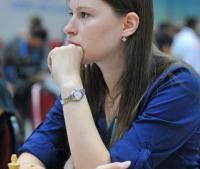
Mastering Your Emotions
At this point this will be the final article of this little cycle on psychology in chess, but I will return to that topic in the future. After all, chess psychology is a very large field, and one of almost universal interest. Today we are going to talk about the important issue of keeping your emotions under control before the game.
People say many games are lost before they are started. Some players act as if they are doomed. All the events of our life are interconnected, even if they seem to be unrelated. For example, if you were in a bad mood before the game for some reason, or someone frustrated you or made you nervous, then even if you switch back to your normal psychological shape before the game, there is still a fair chance of a mistake caused by the emotional imbalance. Have you ever looked into the eyes of the players before the tournament? Sometimes it’s an easy way to predict how each will fare. During the event the situation might change (especially when the competition takes a lot of time), a person might start looking more confident, but still lose. When you allow fear and other negative emotions dwell in you before the game, you are preparing yourself for the upcoming mistakes. Of course, this can be mitigated.
If you find out the reasons of your psychological problems and eliminate them before the game, the mistake might not happen. However, this is playing with fire. It’s better to deal with your psychology well in advance. This holds for chess, as well as for many other activities. When you know that everything in life is interconnected, and your negative emotions won’t go anywhere, you will be thinking twice before reacting that way.
Our performance is strongly affected by emotions. Here and there we hear that one shouldn’t be disappointed after a loss. This is correct, but it’s much harder to follow the advice than to offer it. If a loss stirs negative emotions inside you, they will probably affect the next game, thus decreasing your chances for success. Surprisingly, euphoria is also harmful. Sometimes people are so happy celebrating a win, the next day they don’t have enough energy to fight on. Overreacting in the case of losses or victories is the wrong way to go. One should be delighted in a reserved way about wins, and treat losses as a means of improving in chess and stepping stones to future victories. Naturally, I am not trying to imply that one should become an emotionless robot. It’s about the golden middle and being the master of your emotions.
The following game was played at the ’11 Polugaevsky Memorial. Before that, in round 2, I drew a lower-rated player with White, and had a worse position during the match. This did not inspire any negative emotions in me. I became more concentrated and won the next game without any troublesome adventures.
White misplayed the opening, so I got a comfortable position. At some point my opponent should have sacrificed a pawn, but when he failed to do so, his position became really bad. The game was decided by Black’s strong center and the advantage in the mobility of the pieces.

